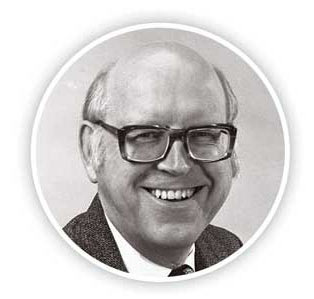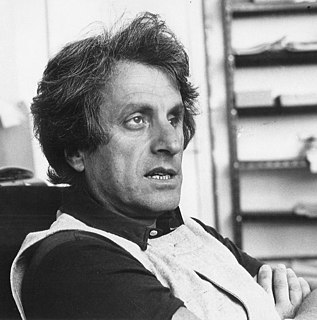A Quote by Augustus De Morgan
I end with a word on the new symbols which I have employed. Most writers on logic strongly object to all symbols. ... I should advise the reader not to make up his mind on this point until he has well weighed two facts which nobody disputes, both separately and in connexion. First, logic is the only science which has made no progress since the revival of letters; secondly, logic is the only science which has produced no growth of symbols.
Related Quotes
Among all the liberal arts, the first is logic, and specifically that part of logic which gives initial instruction about words. ... [T]he word "logic" has a broad meaning, and is not restricted exclusively to the science of argumentative reasoning. [It includes] Grammar [which] is "the science of speaking and writing correctly-the starting point of all liberal studies."
I have said that science is impossible without faith. ... Inductive logic, the logic of Bacon, is rather something on which we can act than something which we can prove, and to act on it is a supreme assertion of faith ... Science is a way of life which can only fluorish when men are free to have faith.
There is a thinking in primordial images, in symbols which are older than the historical man, which are inborn in him from the earliest times, eternally living, outlasting all generations, still make up the groundwork of the human psyche. It is only possible to live the fullest life when we are in harmony with these symbols; wisdom is a return to them.
People knew there were two ways of coming at truth. One was science, or what the Greeks called Logos, reason, logic. And that was essential that the discourse of science or logic related directed to the external world. The other was mythos, what the Greeks called myth, which didn't mean a fantasy story, but it was a narrative associated with ritual and ethical practice but it helped us to address problems for which there were no easy answers, like mortality, cruelty, the sorrow that overtakes us all that's part of the human condition. And these two were not in opposition, we needed both.
I am now about to set seriously to work upon preparing for the press an account of my theory of Logic and Probabilities which in its present state I look upon as the most valuable if not the only valuable contribution that I have made or am likely to make to Science and the thing by which I would desire if at all to be remembered hereafter.
Philosophy [nature] is written in that great book which ever is before our eyes -- I mean the universe -- but we cannot understand it if we do not first learn the language and grasp the symbols in which it is written. The book is written in mathematical language, and the symbols are triangles, circles and other geometrical figures, without whose help it is impossible to comprehend a single word of it; without which one wanders in vain through a dark labyrinth.
It has been a long road from Plato's Meno to the present, but it is perhaps encouraging that most of the progress along that road has been made since the turn of the twentieth century, and a large fraction of it since the midpoint of the century. Thought was still wholly intangible and ineffable until modern formal logic interpreted it as the manipulation of formal tokens. And it seemed still to inhabit mainly the heaven of Platonic ideals, or the equally obscure spaces of the human mind, until computers taught us how symbols could be processed by machines.
The creation of all those symbols and logotypes which are an ever more striking feature of the world in which we live calls for a new and fresh approach to lettering in the part of the designer. In these logotypes the combination of letters can be more or less obvious; but only deliberately contrived encounters of elements and confrontations of values can lead beyond the letters to new forms of expression.
Rhetoric is the counterpart of logic; since both are conversant with subjects of such a nature as it is the business of all to have a certain knowledge of, and which belong to no distinct science. Wherefore all men in some way participate of both; since all, to a certain extent, attempt, as well to sift, as to maintain an argument; as well to defend themselves, as to impeach.
To make music means to express human intelligence by sonic means. This is intelligence in its broadest sense, which includes not only the peregrinations of pure logic but also the "logic" of emotions and intuition. My musical techniques, although often rigorous in their internal structure, leave many openings through which the most complex and mysterious factors of the intelligence may penetrate.
Dialectical logic undoes the abstractions of formal logic and of transcendental philosophy, but it also denies the concreteness of immediate experience. To the extent to which this experience comes to rest with the things as they appear and happen to be, it is a limited and even false experience. It attains its truth if it has freed itself from the deceptive objectivity which conceals the factors behind the facts - that is, if it understands its world as a historical universe, in which the established facts are the work of the historical practice of man.
Natural science is founded on minute critical views of the general order of events taking place upon our globe, corrected, enlarged, or exalted by experiments, in which the agents concerned are placed under new circumstances, and their diversified properties separately examined. The body of natural science, then, consists of facts; is analogy,-the relation of resemblance of facts by which its different parts are connected, arranged, and employed, either for popular use, or for new speculative improvements.




































